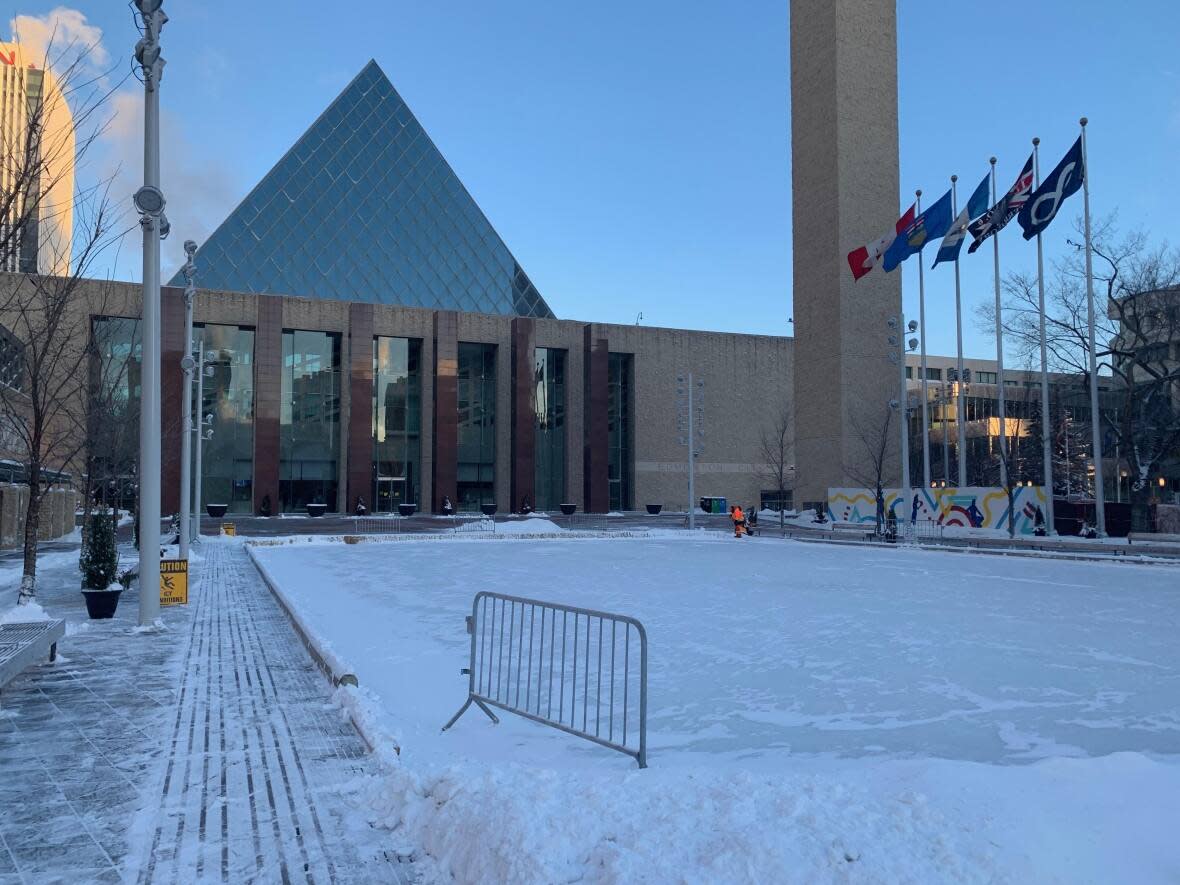Edmonton lacks performance targets for municipal enforcement, auditor finds

Edmonton's municipal and community standards peace officers are lacking performance targets and a proper dispatch and GPS system, the city auditor outlined in a report discussed Tuesday at city hall.
The auditor's office looked into four enforcement areas within the city's community standards and neighbourhoods branch: transit safety, problem properties, animal welfare and homeless encampments.
Hoa Quach, auditor for the City of Edmonton, said his office found the branch was missing processes to evaluate performance in these areas.
The audit, spanning 18 months from February 2021 to mid-2022, focused on how management provides support to enforcement services, not the efficiency and effectiveness of services like warnings and tickets.
"It did not have fully developed performance measures and targets for these plans," Quach told the audit committee.
"Any time you deliver a program, you should have measures, targets, what you actually achieve and monitoring and evaluating whether you've achieved those desired results."
Quach said the branch had good practices in place, action plans, and training as well as established policies and procedures.
David Jones, manager of the community standards and neighbourhoods branch, addressed the auditor and the audit committee.
"Administration recognizes the importance of the audit recommendations to enhance and support the current enforcement services," Jones said.
The city will research and evaluate performance measures and design a process to evaluate and assess service objectives with a goal to implement the changes by next June, the report says.
Dispatch system
The auditor's office also recommends the branch implement a fully functional dispatch and GPS system.
"We found that the GPS system could not provide an accurate officer location for most of the GPS check-ins," Quach said.
In May, the branch stopped using the GPS system and temporarily moved to using Google Maps to locate their officers.
"It had been failing but we had been trying to continue to make it work," Jones told the committee.
"Because it's an app that's on our officers' phones they'd have to re-log in all the time through their shift and it was really inconsistent."
Jones said the city is working on a more holistic computer-aided dispatch (CAD), similar to what police and fire rescue uses.
"The CAD system that's being recommended is more than just GPS," he said. "It is also a way for our dispatchers to keep a really clear eye on where all of the officers are, what they're working on."
Budget impact
The CAD system, including the GPS function, is estimated to cost $2 million. Administration is asking council to approve it as a capital project.
The city's proposed 2023-2026 operating budget lists the dispatch system as costing $703,000 for software licensing and personnel to implement the upgrade.
In 2022, $28 million — 62 percent of the branch's budget — was allocated to enforcement.
Services include engagement, education, warnings, inspections, issuing tickets, issuing court orders, and executing search warrants, the report says.
Peace officers fall under two broad categories. Community standards peace officers, making up 123 full-time officers, work primarily to ensure public and private property is safe. They include:
animal care and control to ensure pet welfare
vehicle for hire that regulates taxi, transportation network vehicles and limousines
Churchill team dedicated to city hall, Churchill Square and the downtown core
general duty peace officers
park rangers, which include the wildlife and encampment teams
transit peace officers that help maintain safety on buses, LRT, and transit stations.
Municipal enforcement officers — 32 full-time staff — work with citizens and businesses by enforcing bylaws related to garbage storage, problem properties and snow removal.


